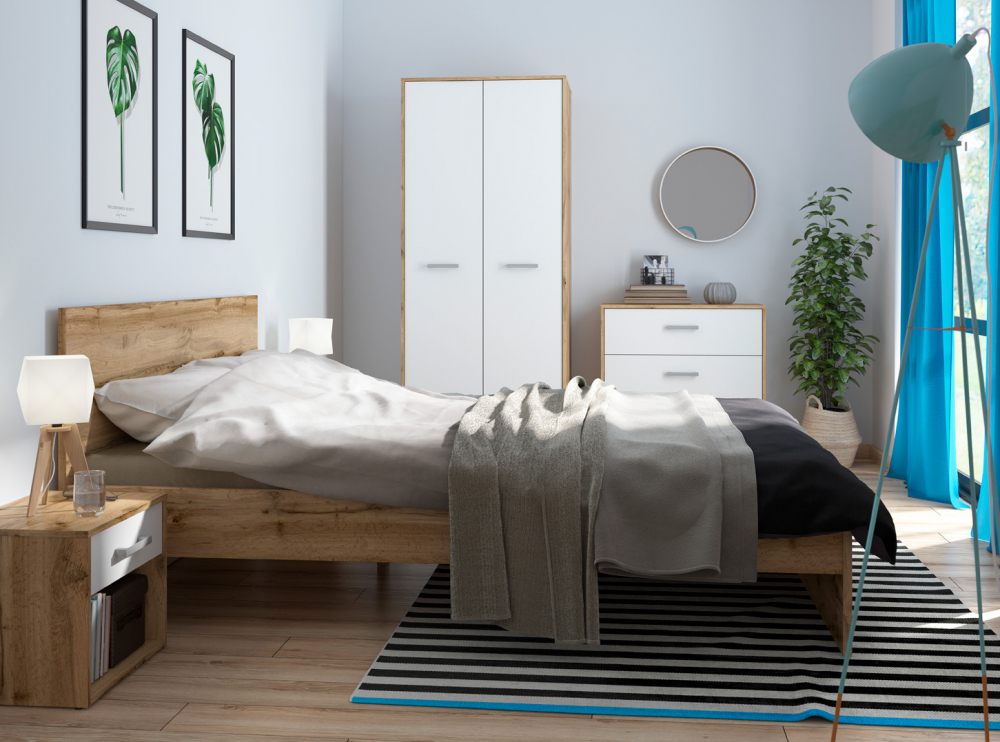INSPIRATIONS

Feng Shui Your Home and Let the Good Energy Flow
Feng Shui is an ancient Chinese art and practice of attracting good fortune through the design of your living and working spaces.
You don’t need to believe in the underlying mechanisms of energy (‘’qi’’) flow to apply the principles, which for thousands of years have been used to create harmonious and welcoming living environment.
Clear clutter
Clutter stops the free flow of positive energy. Get rid of everything you don’t really need or really love, and if you still have to many objects cluttering your space and the field of vision, invest into suitable storage.
This is particularly important in the area immediately near the doorway. The main door to the house is one of Feng Shui’s key points of interest as this is where the good energy enters the house. It should be kept in an excellent state of repair and cleanliness, and lead to a uncluttered entryway. Keep shoes and coats in cupboards, and place fresh flowers in your hall if possible.
In your work space, clean out drawers and filing cabinets. Get rid of everything you haven't used in six months, or file and store away if necessary.
Don’t block doors and passageways
As flow of energy is one of the key concepts in Feng Shui, blocking doors is a big no-no. Make sure that all doors can open at least to 90 degrees, and preferably fully so nobody needs to squeeze through or move bits and pieces to pass through.
The same applies to passageways and space between furniture -- leave enough room for people to walk through without problems. Leave space on both sides of the bed instead of pushing a side against the wall.
Support your back
The main seating area in the living room should be, according to the Feng Shui principles, placed with a wall or at least a substantial piece of furniture (e.g. a table or cabinet) behind it. This provides support to those seating and makes them more relaxed. Never place the sofa with its back to a door.
The same principle applies to the bed: a well Feng Shui-ed bed should have a headboard and be placed against a solid wall for support and security.
When working at a desk, sit with your back to a solid wall (and ideally, face a window)
Establish dominance
Each room has what the Feng Shui experts call a “command position’’ -- able to see the door, ideally facing it diagonally, but not in its direct line. This is where the bed, the desk and the cooker should be ideally placed in the bedroom, office and kitchen respectively. If you can’t achieve that due to the layout of your rooms, using mirrors can help.
Watch the ceilings
Overhead beams are associated with negative energy, as are sloping ceilings. Try not to place main seating or your bed under beams or low sloping roofs.
Use plants for balance and to offset negative energy
In addition to the popular ‘’lucky bamboo’’, Feng Shui friendly plants include palms, peace lilies, rubber plants (and other varieties of Ficus), cheese plants (and other Philodendrons), and ivy. Place tall plants under sloping ceilings or exposed beams to offset the feeling of heaviness. Use plants near computers to absorb negative radiation. Put plants in kitchens and bathrooms to symbolically ‘’dry’’ the rooms.
**
Without learning the more complex principles (and conflicting approaches) of various areas of the so-called Bagua of your home, learning some basic Feng Shui principles will help you introduce more peace, balance and positive energy into your home. A lot of it is about positioning of furniture and layout of rooms. And who knows, good fortune might follow!
